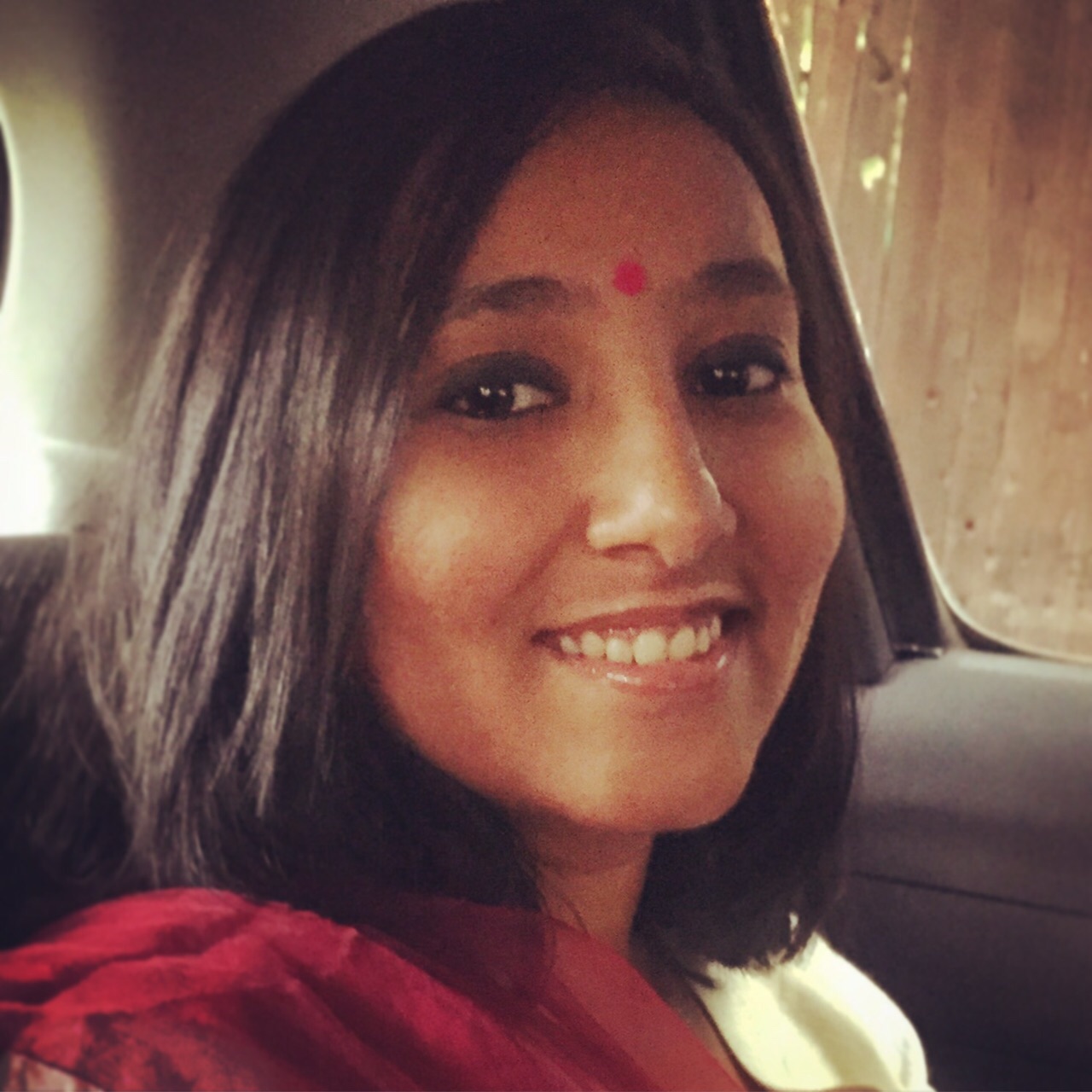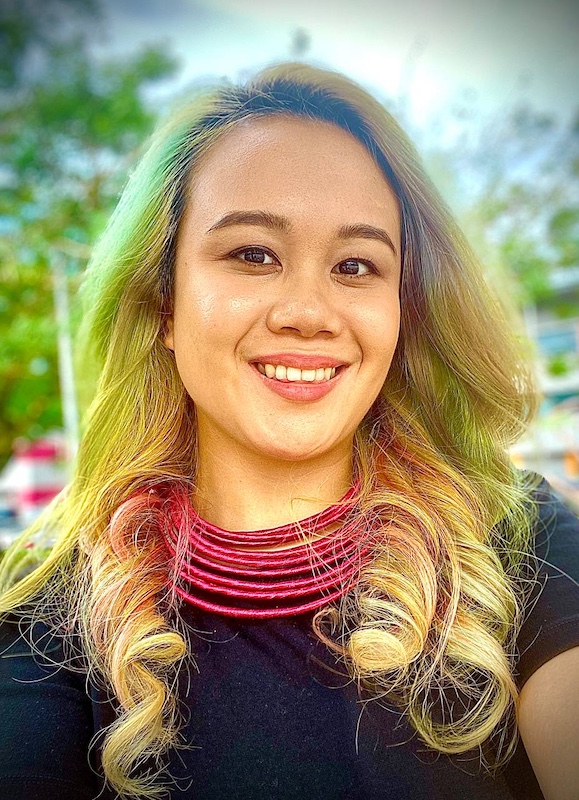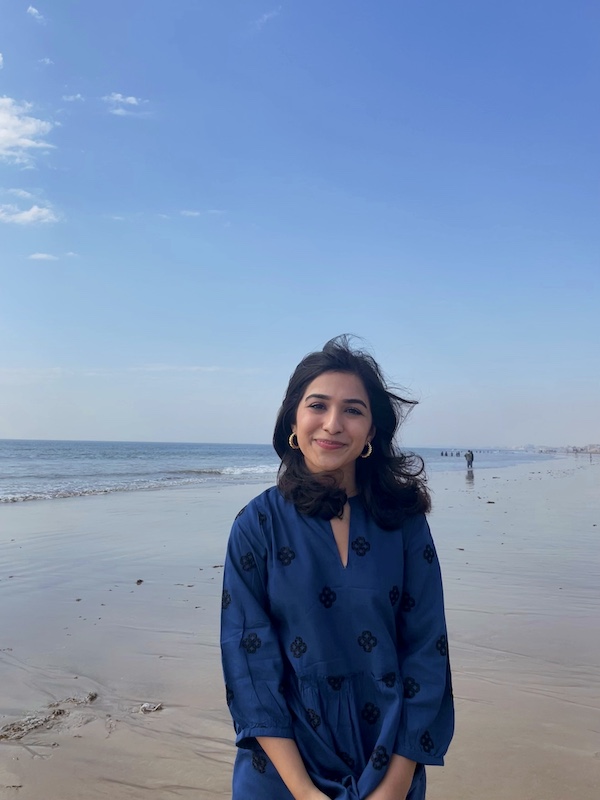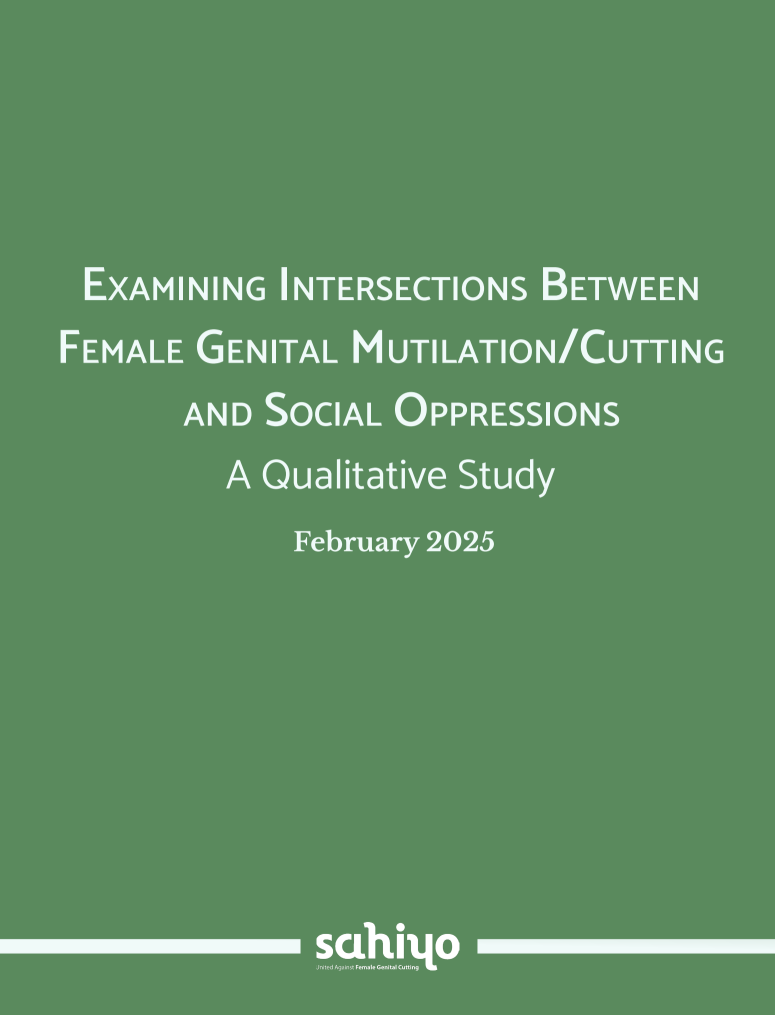In recognition of Feb 6th, International Day of Zero Tolerance to End FGM/C, and this year’s theme “Stepping up the Pace: Strengthening Alliances and Building Movements to End FGM,” our upcoming publication of Sahiyo’s third and final Critical Intersections Research Project report Examining Intersections Between Female Genital Mutilation/Cutting and Social Oppressions: A Qualitative Study could not be more timely. Our report’s findings reinforce the vital importance of recognizing intersectional identities and oppressions, as well as prioritizing the need to build cross-movement collaboration to strengthen the movement to end FGM/C.
Overall, our research reveals through extensive data and testimonials that we are stronger when we work together, contrasting the harmful and discriminatory rhetoric coming from the Trump Administration.
Expanding on the findings of our first two reports, this body of work includes insights derived from in-depth interviews conducted with 29 key experts across various social justice fields.
The interviews were conducted across multiple geographic regions virtually via Zoom from November 2022 to February 2023. Two clear themes emerged: Intersectionality and Cross Collaboration.
The report addresses the following topics within these two themes:
- Intersections between FGM/C and Race, LGBTQIA+, Religion, and Gender.
- Challenges and Opportunities to Cross Collaboration.
From these findings, four recommendations were derived to address FGM/C:
- Coordinate with social service sectors across various social justice issues to improve support and resources for survivors.
- Improve language and framing of FGM/C to limit racialization and/or exclusion of marginalized communities in terms of who is impacted by FGM/C.
- Increase education on how FGM/C is intersectional within anti-FGM/C organizations, as well as across different movements/sectors.
- Implement more diverse and equitable approaches to data collection, analysis and dissemination that include input from a diverse array of stakeholders.
Don’t miss our webinar, Intersectional Approaches Strengthen Alliances and Build Movements to End FGM/C, to learn more about the three-year project.
Date/Time: February 27 @ 10-11:30 AM ET
Registration link: https://bit.ly/FGMCAlliances
Description: This webinar, which is both a culmination of the Critical Intersections Research Project and a charted path forward, will loop in key players from throughout the project to share their experiences and explore key findings that emphasize how intersectional approaches in ending FGM/C, including building alliances and partnerships with other social justice movements, strengthens our overall work to end FGM/C.
Speakers:
 Aarefa Johari is a journalist and feminist activist based in Mumbai, India. She has been advocating for an end to Female Genital Cutting since 2012 and is a co-founder of Sahiyo, an organisation working to end FGC.
Aarefa Johari is a journalist and feminist activist based in Mumbai, India. She has been advocating for an end to Female Genital Cutting since 2012 and is a co-founder of Sahiyo, an organisation working to end FGC.
 Saza Faradilla (she/they) is a co-founder of End Female Genital Cutting Singapore, which envisions a world where the practice of FGC is obsolete. She raises awareness on social media and on-the-ground, and participates in local and international lobbying at the United Nations to bring attention to the fact that FGC is a pressing concern in Asia. Equally important, she calls for a culturally-contextual and intersectional feminist approach when dealing with sexual and gender based violence across diverse Asian communities.
Saza Faradilla (she/they) is a co-founder of End Female Genital Cutting Singapore, which envisions a world where the practice of FGC is obsolete. She raises awareness on social media and on-the-ground, and participates in local and international lobbying at the United Nations to bring attention to the fact that FGC is a pressing concern in Asia. Equally important, she calls for a culturally-contextual and intersectional feminist approach when dealing with sexual and gender based violence across diverse Asian communities.
 Jessica Puri is an Adjunct Professor of Public Health and founder of The Parable Lab. Nicknamed a Creative Academic, she enjoys the pursuit of knowledge and rest through creative expression and storytelling.
Jessica Puri is an Adjunct Professor of Public Health and founder of The Parable Lab. Nicknamed a Creative Academic, she enjoys the pursuit of knowledge and rest through creative expression and storytelling.
 Naquia Unwala is currently a medical student at Georgetown University School of Medicine. She is also a Research Associate at Cornell University where she studies homelessness, public health disasters, and urban politics. Naquia is a volunteer at Sahiyo, and has helped with leading qualitative analysis of the Critical Intersections Research Project.
Naquia Unwala is currently a medical student at Georgetown University School of Medicine. She is also a Research Associate at Cornell University where she studies homelessness, public health disasters, and urban politics. Naquia is a volunteer at Sahiyo, and has helped with leading qualitative analysis of the Critical Intersections Research Project.
Critical Intersections: Since 2021, through our survivor and advocate-led Critical Intersections Research Project, Sahiyo has sought to understand how systems of oppression have delayed progress toward ending female genital mutilation/cutting (FGM/C), as well as explored the potential to build collaboration with other social justice movements to increase advocacy work on ending FGM/C. Inspired by a webinar in 2021 that sought to specifically examine the impact of systemic racism on the movement, this three-stage mixed-methods project has expanded that initial scope to understand the interplay between FGM/C and other oppressive forces such as Islamaphobia, xenophobia, transphobia, gender discrimination, and more.
A special thank you to the Wallace Global Fund for funding this project!

